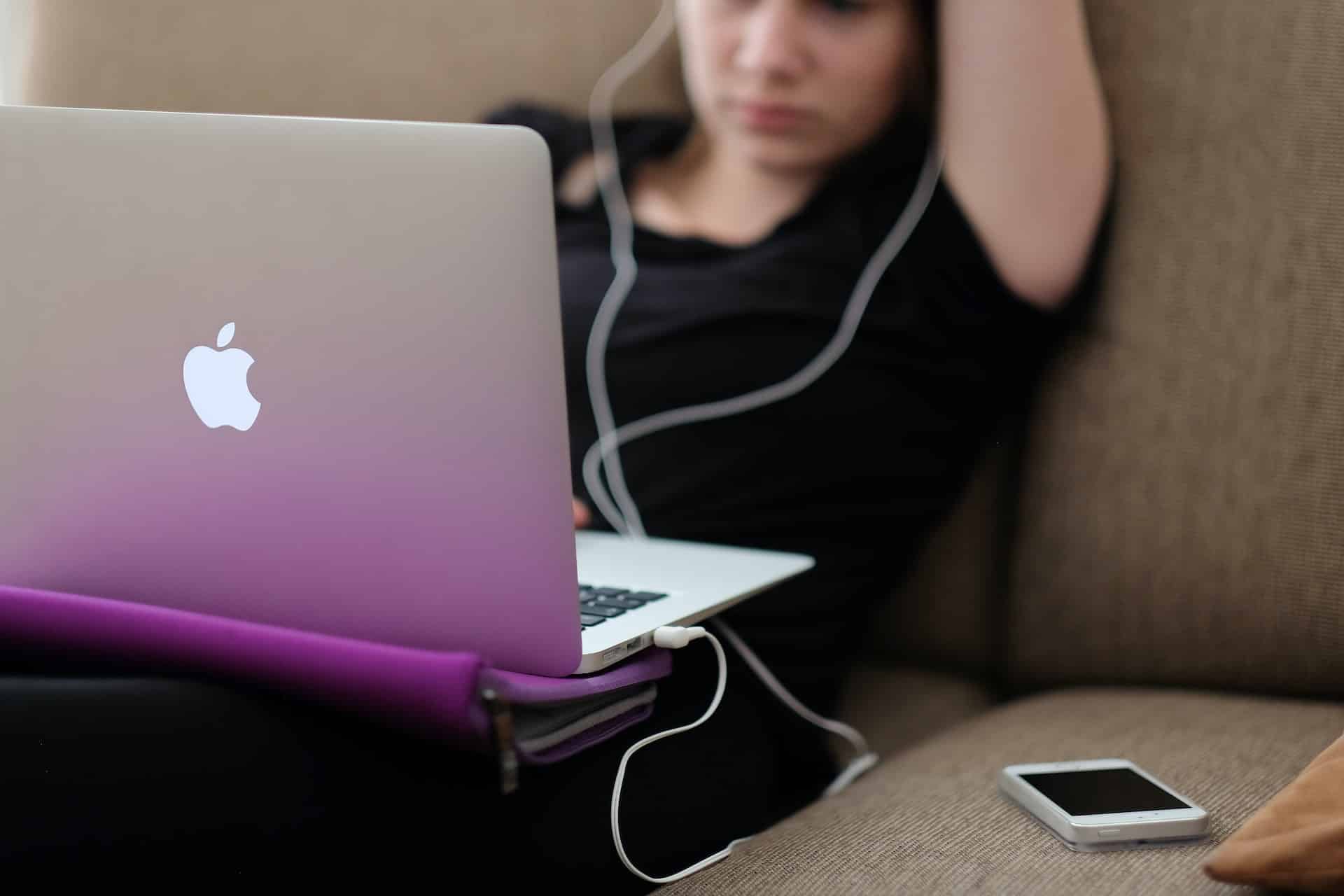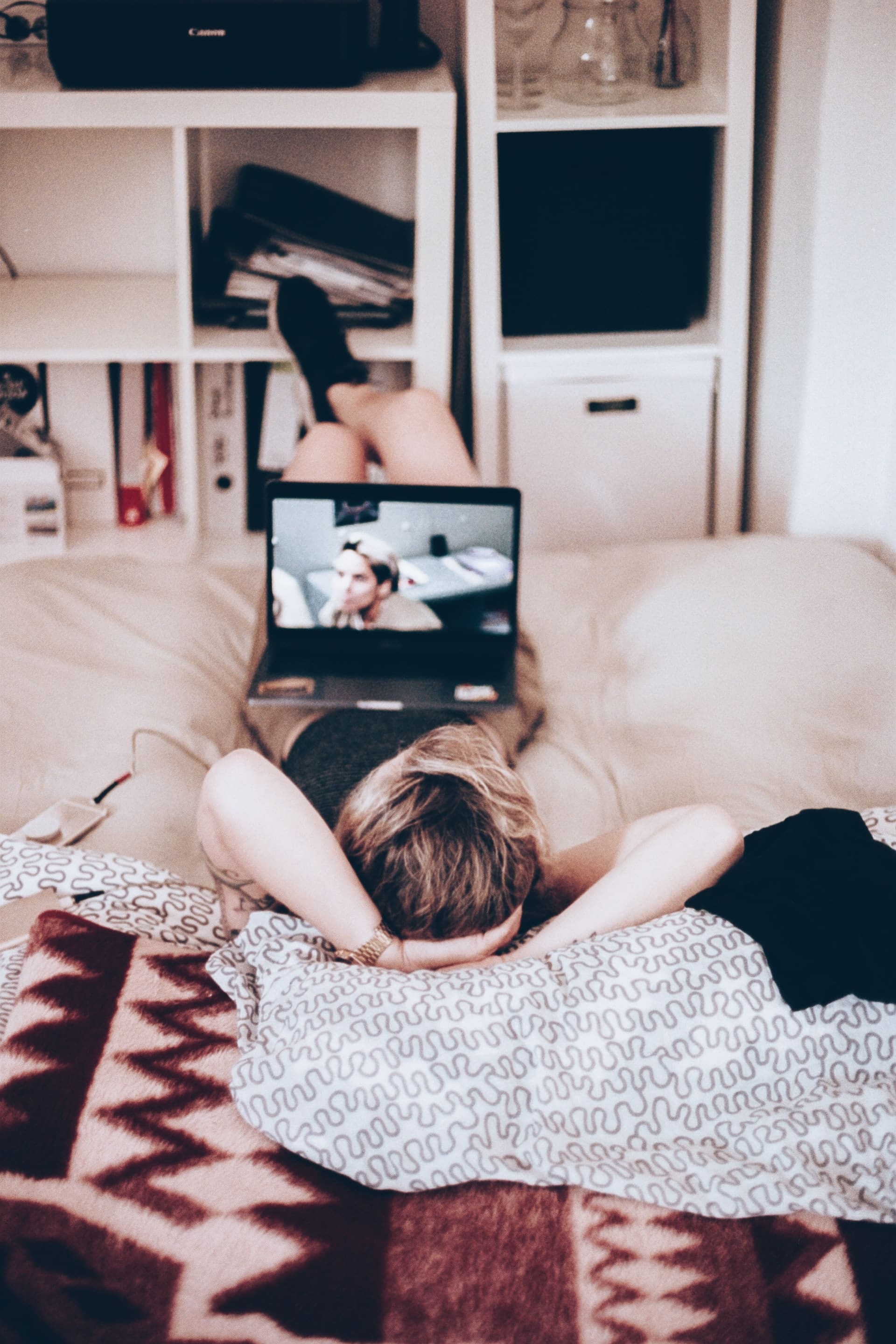If you’re looking for ways to reduce your screen time, you’re not alone. A recent study found that the average American spends more than 11 hours a day staring at screens. That’s more time than we spend sleeping.
While there’s no need to become a digital hermit, there are some simple things you can do to cut back on screen time and improve your overall well-being, so you can focus on your responsibilities at home or your career at Confident Comfort. Here are a few tips to get you started.
IMAGE: UNSPLASH
Understand Why You’re Using Screens In The First Place – Are You Bored, Anxious, Or Lonely?
Screens can provide an outlet for difficult or uncomfortable emotions, such as boredom, anxiety, and loneliness. Being able to identify why you’re using screens in the first place is important in managing your screen time and overall mental health.
It can help you gain a better understanding of how habits form and how to address underlying emotions that may be contributing to your screen use. Taking a step back to recognize what you’re feeling will make it easier for you to find healthy coping mechanisms such as taking a walk outside, journaling, or talking to a friend instead of relying on screens to provide a distraction or relief.
Find An Activity To Do Instead Of Using A Screen – Read A Book, Take A Walk, Or Call A Friend
If you’re feeling the urge to switch up your routine and take a break from screens, there are many activities that can provide a refreshing change of pace while still reaping benefits. Reading a book is a great way to escape into a different time and place, learning something new along the way. Taking a walk can be beneficial for both mental and physical health – not only does it get your blood flowing, but it can also provide much-needed perspective.
Finally, talking to friends or family on the phone or via video chat is an enjoyable way to connect with those near and far. Whether you choose one or all three, these activities are sure to help combat screen fatigue.
Set Limits For Yourself – Decide How Much Time You Want To Spend On Screens Each Day And Stick To It
Setting limits for ourselves regarding how much time we spend on screens can be beneficial in more ways than one. By deciding ahead of time, we can create better habits and help reduce our stress levels by avoiding feeling overwhelmed.
Additionally, limiting the amount of time we spend on our screens helps us to make other productive activities such as exercising, reading, socializing, or engaging in any other hobby part of our daily routine. Understanding our own needs is key to setting clear boundaries that lead to a healthier life balance.
Keep Track Of Your Screen Time – There Are Many Apps That Can Help You Do This
Keeping track of your screen time can be a useful way to maintain a healthy relationship with technology. There are many apps available that make the process easier – from simply tracking your device usage, to actually limiting and blocking access when you reach threshold levels.
Making an effort to understand how much time someone is spending on a device or online can encourage users to reflect on their behavior and habits, and discover ways in which it could be improved. With the right tools and resources, it can be easy to stay accountable and mindful of your digital presence.
Take Breaks From Screens Regularly – Give Your Eyes And Mind A Break By Spending Some Time Away From Screens Every Few Hours
Taking regular breaks from screens is essential to preserve both physical and mental wellbeing. Not only can the blue light emitted from electronic devices cause eye strain, but staring at a screen too long can be mentally exhausting. To prevent such fatigue and damage to your eyes, it’s important to step away from electronics for a few minutes every few hours.
During these breaks, try doing some deep breathing exercises, stretching, or going for a short walk – this break for yourself will help your body and mind stay alert throughout the day.
By taking breaks from screens and setting realistic limits, we are better equipped to use screens responsibly and focus on the more important parts of life. We can use our screens to stay entertained and connected, but remember that there’s a real world out there, too that needs attention.
Even if it’s hard to switch off from all of the digital technology in our lives, by keeping track of our activities, looking for alternative activities to do, and setting defined limits for ourselves, taking a break from screens becomes easier.
Focusing on enjoying time away with family or friends, exercising outdoors, or reading a book can help break up an otherwise overly connected life. You don’t have to give up yourscreen time completely; just moderate it wisely.


COMMENTS